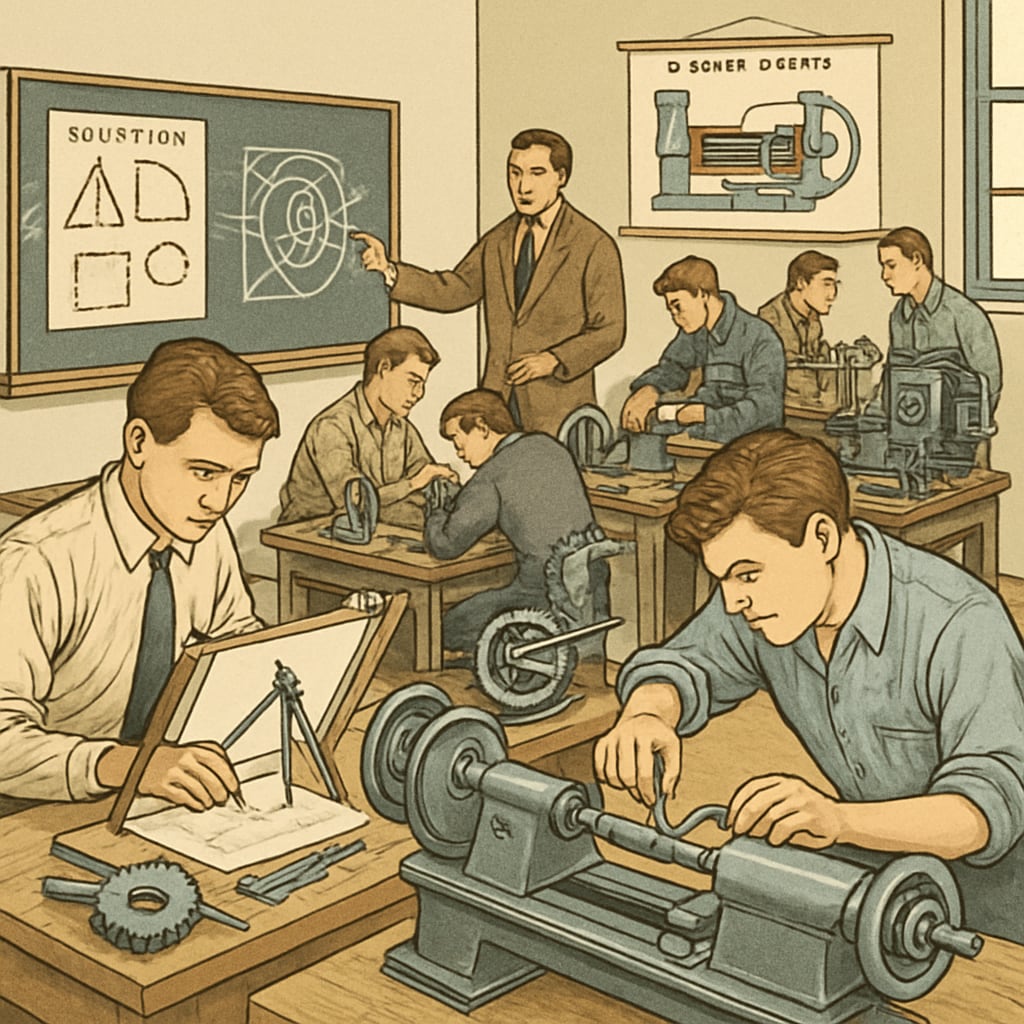Classical education, once hailed as the foundation of intellectual development, has undergone significant changes due to historical transformations. Its decline reflects broader societal shifts, including the Industrial Revolution, the democratization of education, and the emergence of pragmatic philosophies that prioritize practical skills over traditional curricula. Understanding this evolution offers valuable insights into the forces shaping modern education systems.
Industrial Revolution: A Turning Point in Classical Education’s Decline
The Industrial Revolution, spanning the late 18th and early 19th centuries, fundamentally altered societal structures, including education. As industrialization demanded a workforce equipped with technical and practical skills, traditional classical education—centered on subjects like Latin, Greek, philosophy, and rhetoric—was seen as less relevant to the needs of the modern economy. Schools began to pivot toward science, mathematics, and vocational training to align with industrial priorities.
For example, factory systems required workers trained in engineering and mechanics rather than the abstract reasoning emphasized in classical studies. This shift marked a departure from the holistic intellectual development that classical education once championed.

Educational Democratization: Expanding Access and Changing Priorities
The democratization of education in the 19th and 20th centuries played a key role in reshaping curricula. Public schooling systems emerged to provide accessible education to broader segments of society, prioritizing inclusivity over exclusivity. Classical education, which had traditionally catered to elites, was gradually replaced by more practical and accessible subjects.
Furthermore, the rise of universal education laws and mass literacy campaigns emphasized basic reading, writing, and arithmetic as essential skills for all citizens. While these advancements were undeniably beneficial, they often sidelined the rigorous intellectual focus of classical education.

The Influence of Pragmatism: Prioritizing Utility Over Tradition
Pragmatism, a philosophical movement popularized in the late 19th and early 20th centuries, further accelerated the decline of classical education. Thinkers like John Dewey advocated for an education system that prepared individuals to solve real-world problems and contribute to society. As a result, curricula increasingly emphasized subjects with direct applicability, such as science, economics, and technical skills.
While pragmatic approaches brought undeniable benefits, they often dismissed the intellectual traditions and cultural heritage embedded in classical education. As a result, the study of classical texts and languages became a niche pursuit rather than a mainstream educational priority.
Reevaluating Classical Education in Modern Contexts
Despite its decline, classical education retains valuable lessons for contemporary reform efforts. Its emphasis on critical thinking, ethical reasoning, and cultural literacy provides students with a foundation for thoughtful decision-making and global citizenship. As modern education systems grapple with the challenges of rapid technological change, revisiting the principles of classical education could offer a counterbalance to the hyper-specialization and utilitarian focus of current curricula.
For example, incorporating elements of classical education, such as Socratic dialogue and the study of historical texts, could enrich students’ analytical skills and broaden their intellectual horizons.
Readability guidance: This article uses short paragraphs, lists where applicable, and transitions such as “for example,” “however,” and “as a result” to enhance readability. Passive voice and long sentences are minimized, ensuring clarity and engagement.


